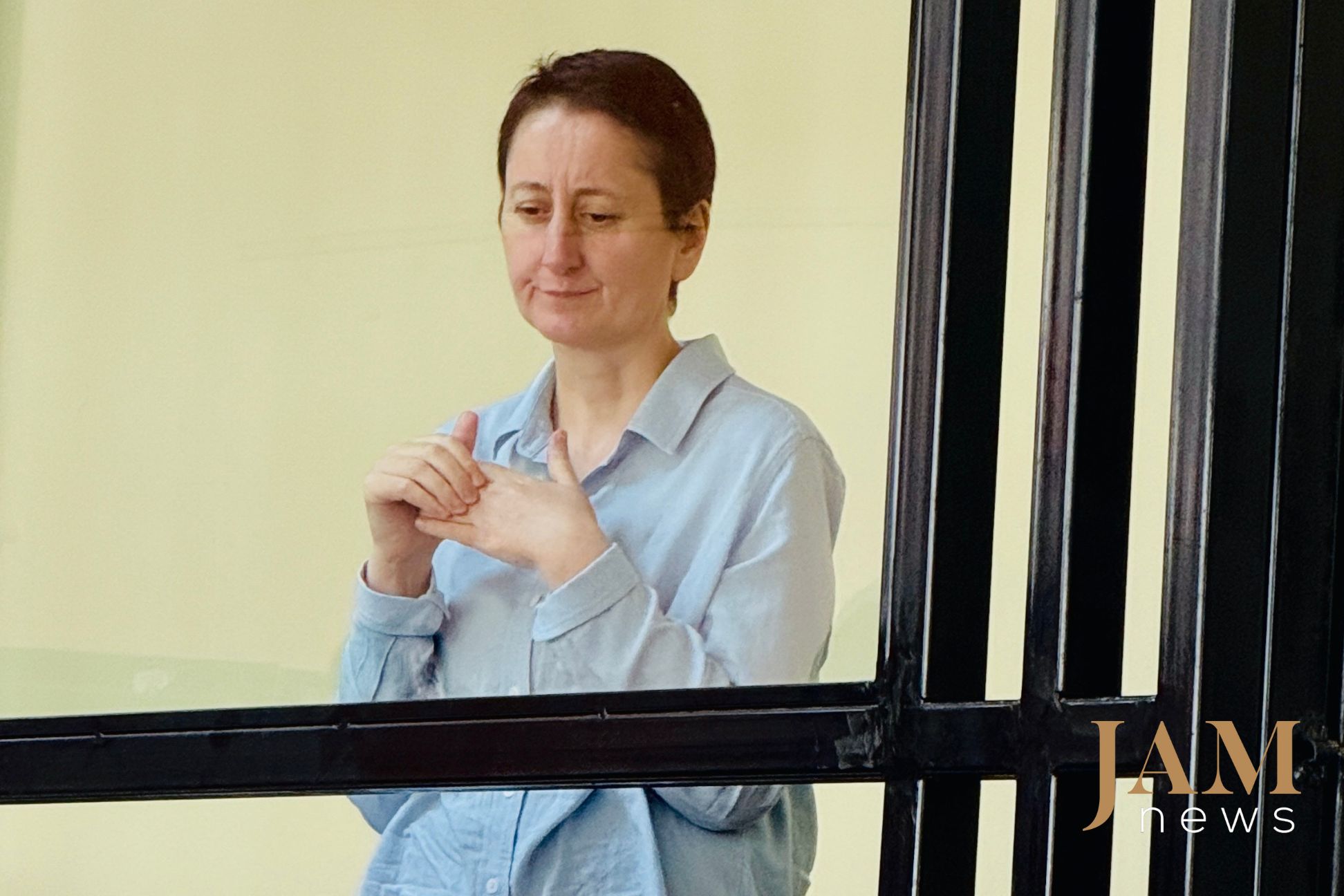Court orders forced psychiatric evaluation of Georgian activist Nino Datashvili
Psychiatric evaluation ordered for Georgian activist
The organisation Partnership for Human Rights said on 2 August that prosecutors had requested a psychiatric evaluation of detained activist and teacher Nino Datashvili, and the court approved the request. The decision was made in July 2025 by Judge Pikria Sikturashvili.
Datashvili was arrested on 20 June, following an incident at Tbilisi City Court on 9 June. She has been charged under Article 353, Part 3 of Georgia’s Criminal Code with assaulting a public official, specifically a court bailiff. The charge carries a sentence of four to seven years in prison or a fine.
According to her lawyers, the court ruled that if Datashvili refuses to undergo the evaluation, proportionate coercive measures may be applied.
“This means the court has authorised her forcible transfer to a psychiatric facility,” said her lawyer Tamar Gabodze.
Gabodze called the prosecution’s request for a psychiatric evaluation baseless and illegal, describing it as a new tactic used to suppress activists. She added that Datashvili was excluded from the hearing and wasn’t even informed about what case was being considered.
According to Tamar Gabodze, the prosecution’s request was based on medical records shared by the defence during the first court hearing. These documents state that Nino Datashvili suffers from a serious spinal condition — a herniated disc and sciatica — with emotional instability listed as a secondary symptom.
“In 2019, following a spinal injury, Nino experienced emotional instability, tearfulness, and heightened sensitivity — none of which constitute a diagnosis,” Gabodze said. “These were symptoms linked to her physical condition, which the prosecution was aware of from the beginning. But for two months, no action was taken regarding her health. Now that the investigation is essentially complete, and the prosecution needs a stronger basis to justify her continued pre-trial detention, they have unlawfully requested to place her in a psychiatric facility for 20 days. In effect, they’ve extended her detention — this time in a psychiatric ward — without legal grounds.”
- In six months, Georgia passed five laws restricting media. Here’s a breakdown
- “Repeal repressive laws, protect rights” – European Commission pressures Georgian Dream, visa-free regime at risk
On 2 August, the Prosecutor’s Office issued a statement confirming that the decision to request a psychiatric evaluation for Nino Datashvili was based on medical documents provided by the defence.
“Since the documents submitted by the defence themselves indicated a [complex] psycho-emotional condition, it was deemed appropriate to order an evaluation,” the statement read. “We also wish to inform the public that in such cases, a psychiatric assessment is standard procedure.”
Datashvili’s lawyers plan to appeal the court’s decision, though they note that none of their previous appeals have been successful.
“Mental health must not be used as a tool of repression”
Lawyer Tamar Gabodze believes the court’s ruling is an attempt to discredit Datashvili, pointing out that psychiatry remains heavily stigmatised in Georgia.
“The goal is to push Nino out of activism entirely, discredit her, and — shamelessly and without grounds — lock her in a psychiatric facility,” Gabodze said. “It means they can now use this cruel and deeply illegal method against any human rights defender who dares to oppose the regime.”
Following the release of the statement by Partnership for Human Rights, messages of support for Datashvili appeared on social media. Public figures, medical professionals, and ordinary citizens voiced concern over the weaponisation of mental health for punitive purposes, warning of the dangers of stigmatising and discrediting individuals through psychiatric labels.
Psychiatrist Simon Surguladze noted that Datashvili’s case illustrates the government’s desperation.
“Even if someone has a mental health condition, they may still be able to make informed decisions,” he wrote. “In Nino’s case, she doesn’t even have a psychiatric diagnosis. She is clearly capable of understanding the situation and choosing whether or not to undergo an evaluation.”
Psychiatrist Manana Sharashidze wrote on social media that the mishandling of Datashvili’s case is damaging the credibility of psychiatry itself:
“A psychiatric evaluation was ordered despite the absence of any objective grounds. The improper handling of this case undermines the credibility of psychiatry as a science. Now, all psychiatrists must stand with Nino Datashvili!”
Ani Kavtaradze, a member of the opposition Coalition for Change and an anaesthesiologist specialising in chronic pain and brain disorders, said that forced psychiatric evaluations can be seen as a form of psychological and political pressure that violates a person’s right to health and is completely unacceptable in a modern state.
“This was a hallmark of the Soviet regime — a shameful practice that belongs in the past. Using such methods to silence political activists is the signature of the Russian regime, and it must end with it,” Kavtaradze said.
At 8pm on 4 August, supporters will gather at Freedom Square in Tbilisi to show solidarity with Nino Datashvili.
“Slogans such as ‘Free Nino Datashvili’, ‘No to punitive psychiatry! No to repression! Freedom for political prisoners!’ have been shared in the announcement for the rally.**
Ombudsman investigates Datashvili’s health and detention conditions
Also on 4 August, the office of the Public Defender (Ombudsman) released a statement confirming that Datashvili’s case is under investigation. A representative from the office met with her on 2 August at Rustavi Prison No. 5. The statement did not address the court-ordered psychiatric evaluation.
According to the ombudsman’s office, the meeting focused on Datashvili’s health and conditions of detention.
The office said it continues to monitor the situation to ensure the protection of her rights, including the right to health.
To assess her situation, the ombudsman has requested Datashvili’s full medical records, with formal inquiries sent to the Medical Department of the Georgian Prosecutor General’s Office, the Ministry of Internal Affairs, and the Special Penitentiary Service.
News from Georgia



















